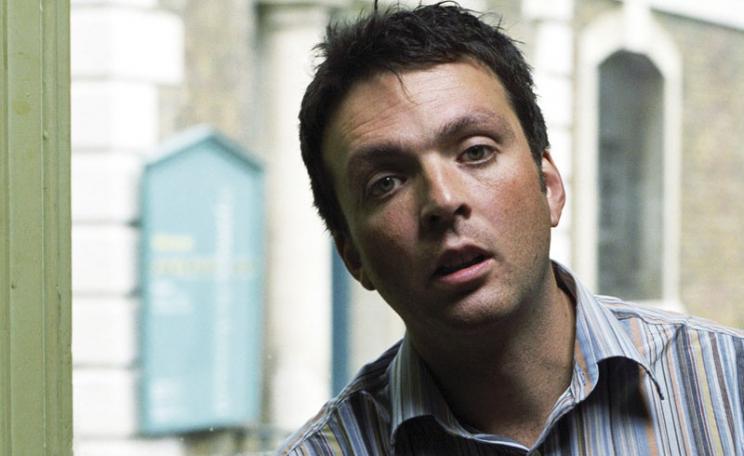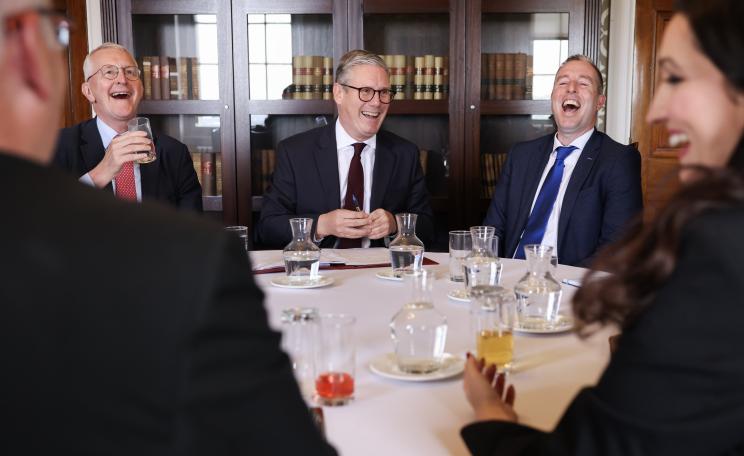The election campaign is taking on a more recognisable shape as the poll approaches, with Labour raising its standard of ‘aspiration’ to counter the Tories’ considerably less appealing — if more ecologically friendly — ‘austerity’. But what do we expect our young people to aspire to? What do any of our politicians have to offer children whose teachers despair that their primary ambition is simply to be famous by appearing on a reality TV show?
Today a young man or woman chooses to become a chef for one reason only: to appear on the telly. A job that might once have been perceived as a vocation to prepare the highest quality natural ingredients to delight eye and palate — or even an honest and skilful way of earning a livelihood — is now just one more route to achieving celebrity. Journalists and politicians, hairdressers and chefs vie with each other to develop more extreme mannerisms and quirky clothing so as to attract the camera lens. Just as the real economy has been hollowed out by financialisation and the obsession with fortune, so the world of work has been emptied of meaning by this stampede for fame.
Mirage of celebrity
A back-of-the-envelope calculation comparing viewing hours with the size of the population makes it clear that the vast majority of us will not be lucky enough to achieve even the 15 minutes of fame offered us by Andy Warhol. We will labour on in dissatisfaction, envying Gordon Ramsay or Myleene Klass, distracted from the real quality and value of what we do by the elusive mirage of an unattainable acclaim.
I recently heard a most beautiful version of Leonard Bernstein’s Chichester Psalms where the solo in psalm 23 reduced me to tears. The announcer identified him as an ‘unnamed soloist of the Vienna Boys’ Choir’. I was reminded of the similarly unknown master masons who created the glories of our Medieval cathedrals. They did not consider their work their own: they learned it in the mystery and awe of the craft guild and believed that any skill they possessed to be a sacred gift. Their work, as perhaps the boy’s exquisite solo, was for the glory of god rather than their own fame.
With the exception of Robert Owen, who was a notorious self-publicist, the history of the co-operative movement is one of a similar collaborative effort. The co-operative shops and banks that have thrived for the past century and a half were created by groups such as the Fenwick Weavers or the Rochdale pioneers. We remember them as collaborators, sharing the efforts and rewards of their work and their political activity alike.
What do you think? Comment here
The co-operative ethic
In his book The Craftsman, which I warmly recommend for its grounded perspective on the nature of work, Richard Sennett likens co-operative work to the functioning of the human hand:
'The digits of the hand are of unequal strength and flexibility, impeding equal coordination. When hand skills develop to a high level, the inequalities can be compensated; fingers and thumbs will do work that other digits cannot perform themselves. The colloquial English usage of “lending a hand” or the “helping hand” reflect such visceral experience. The compensatory work of the hand suggests — perhaps it is no more than a suggestion — that fraternal cooperation does not depend on sharing equally a skill.'
In a co-operative work environment, Sennett argues, we are all valued for what we do well and supported in areas where we need to rely more on the skills of others. We do not seek to stand out from our comrades but to join with them and together focus on our shared endeavour, which is greater than our selves.
Celebrity, consumption and the quest for fame are all symptoms of an economy that is socially and environmentally destructive. The competition and envy that it breeds are corrosive of communities and of our self-esteem. Replacing these with co-operation and solidarity would be an important step along what Marshall Sahlins called ‘the Zen road to affluence’.
| READ MORE... | |
 |
COMMENT Economics without land is a disaster Economists have all but forgotten about the source of real wealth - the land under our feet. They do so at their peril |
 |
INVESTIGATION Copenhagen failed. So should we tax carbon at the border? The lack of agreement at Copenhagen has left some thinking that the only way to protect national economies is to tax imports from nations who don't pay a carbon price... |
 |
INVESTIGATION Farmers' markets, coops and repair shops will seed the new economy It's called the 'Cinderella economy'. You know it as the local, sustainable businesses that don't make the GDP figures soar, but do provide jobs and glue communities together... |
 |
INTERVIEW UEA's Andrew Watkinson: 'we need to be much more open about how science works' Former Director of the Tyndall Centre and a Professor at the University of East Anglia, Andrew Watkinson explains why 'a few loose sentences' in the IPCC report shouldn't change people's opinion of the science |








